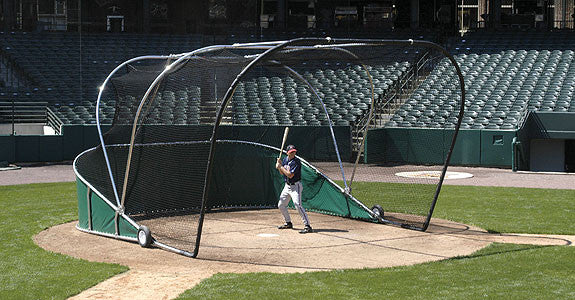This is a little bit out of my normality of posting but had a situation that I thought would be worthwhile talking about. It's one is old as coaching and is always going to come up there is no true solution. However I do believe there's one question that we can ask and press the person complaining for their answer.
I help coach my son's team and is a 10 under team, kind of an ordinary team the place in a recreational league in our town but we try to do the best we can and make the boys better because we do know what shape the ball is in of got some legitimate background in coaching and baseball. Which is a nice way to say we pretty much know what were doing.
After a game last week the one parent that doesn't want to coach but doesn't like the way were doing came to us and said he just had to get off his chest. What he had to talk about was that he thinks the coaches lost that game. (Not sure how we gave up the 10 hits, five errors in eight runs while only scoring two runs but it was Coaches fault). then of course after he talked a little bit the real truth came out that he was upset that his boy who happens to be left-handed and not that fast had to play right field sum as well as first base. Now most the time he plays first base but in this particular game he pitched and played right field and didn't play first base. He immediately compared it to my sons boy, and the other coaches boy who play second in short and that's the only position they played.. You
his statement was at the end of all this complaining that he was grooming his boy to be a first baseman and that we were doing a misjustices to his boy by not playing him at first base all the time where he wants him to play as that's going to be his position and that's what were grooming there's that word again him for.
Both the coaches listened very patiently and really didn't respond,, really not all they just said thank you and will consider everything you said. Now as the coach of 50+ years that just helps a practice and doesn't have anything really to say about the lineup I only help with the skills. I believe they handle it very well as he left Calm but I'm sure is not satisfied because there were no guarantees made about how where his boy were going to play.
Now this is the real reason I write this any coach that listens to any parent, fan, and it's having a semi-rational discussion about what you're not doing should always ask them this final question-- WHAT WOULD YOU HAVE US DO AND WHAT KIDS SHOULD WE LEAVE OUT. If he can't answer that what he would do, and how he would handle it then the conversation really over.
I knew the winningest basketball coach in college basketball, he coach for North Dakota State Don Meyers, and he was speaking at a clinic one time and said I will talk to anybody about anything I want the best for my players except I will talk to anybody especially parents about playing time. My answer is always the same tell me what player you don't think should be playing, and I will get you his phone number so you can call his parents and discuss it with them. Granted it was a non-realistic answer but it certainly brings forward very good point very clear that not getting enough time there has to be a player is getting too much time so who's decision should that be --THE COACH'S.
That is my 2 cents and opinion.
Coach Arnald Swift
I've been reading a lot about travel baseball here recently and how much time and effort spent the dedicated to it. For my own personal experience my grandson has now devoted since December until probably September/October to baseball. They been having practice once or twice a week since after Christmas and as of today March 12th 2015 they've only played one game both of those in a practice tournament.
now that you have the picture the question is is that good for him, as a coach 34 years at the high school level in a coach for well over 40 years I question it. Every study you read there has been much of it recently indicates that players become better athletes, begun better people, and are just better off all the way around in their life if they have diversity. Now I'm not saying there's not a time to start to dedicate to single sport that time is not when you're young by my definition young means actually under 18, though I'm sure somebody will argue there but I believe were kidding ourselves if we think we can make players starting at 8 or 9 years old and do nothing but a single sport. I would be willing to bet a lot of money that for every one athlete that goes on it becomes very good in that single sport they dedicated all their time to there are probably close to 100 that quit or find another sport.
So I'm going to offer this piece of advice you know you're doing your right by your player when you do what the player asks, there's the keyword what the player asks not what you thinks good not what you thinks should be done but what the player wants to do. Now don't get me wrong once you start doing something do it right, and even do a hard but please don't make your player become dedicated to a single sport at a very early age or even up to high school. The odds of them becoming a better person are enormous compared the odds of them becoming a professional player. Think about it you and your kids will be happier if they diversify and enjoy and have fun.
Coach Arnald Swift's-- 69 years a dad 45 years umpire and 50 years as a coach
Jeannie
thank you for the question would be happy to come in on as I've been faced with this very problem with my two boys and, so the kids that I've coached over the 40 years. This is going to be my coaches/dad answer.
There is no doubt in my mind you play for the team that is not highly ranked in your description. It has zero value for player development, player enjoyment, player advancement to sit on the bench. If you're not playing you're getting behind in a 10% playing time, top team really is nothing is nothing but late inning appearances, games that don't mean anything, games that are already lost or one that he would be getting in.
The only value playing with the team is the social interaction, and the prestige with that similar very thin when you're not getting to do anything to contribute. The one thing I can't see is how good he is and why he's only a 10% player, if there's a reason that he can overcome to become one of the 90% players and that's what he needs to do but he's going to do it by playing6 not sitting on the bench.
Then finally let me say one thing is a coach and a the may sound a little harsh this is 13-year-old baseball there no scholarships, there's no real glory outside of what you give it to yourself, there's going to be at least five more years of trying to become a player. When it really counts is in the high school, or the 17 and up summer teams. But he'll never make those sitting on the bench. He needs to be playing. Now if a boy or girl is a player and they are playing and they should be moving up within their age brackets play the top competition that's available. But they have to be able to play and succeed.
Let me ask you a question when I was coaching basketball in a very small high school I was the JV coach. We had a senior that was not very good in fact he was going to get cut as a player but he was a super kid is a person so we gave him the choice, a rare choice of high school, that as a senior he could play on the JV team and play not to set. He chose to be the 13th man 12 man squad at the high school level instead of to play at the JV level. So in reality he didn't play at all and all the games that season he probably got on the floor maybe a total of five minutes. So my question is was he right or wrong. To me that's the same question you're asking here is better to sit or better to play. It's always better to play in my mind and in my advice.
Coach Arnald Swift
34 years of teaching, 40+ years of umpiring, 40 years of coaching at all levels from youth to D1, coached almost every sport there is one point of the other.
I would like to say a few words about young players or even older players concentrating on the single sport to early in life. This is going on because my grandson all of a sudden is decided he didn't want to play basketball this year that he only want to play baseball. I was in particularly in favor but he is 10 years old and he's going to change his mind more than once that's a guarantee. What's happened on a practical level is that there is no baseball for him to concentrate on so the only thing he's doing is going to the cage once in a while it hitting with that's not really practice. But more importantly I think it's a matter he's not getting the life experiences that he would enjoy playing all the games with all his friends. I encourage parents to really get their kids to try many different things. Sports aren't any different than food, entertainment, academic interests, arts and science, all that kind of thing. I don't think there's a parent out there that doesn't hate when their kid just sits in front of the TV or in front of the videogame. But I really don't see that much difference between those two activities only doing one sport during the developmental years.
I'll even add a second story of a young man I know in California that only play baseball up until the time you said during his freshman class, 2016, at that point he decided he didn't like being left out social circle so he was going to play football. As it turned out he was relatively good enjoyed it and says he's going to do it again, now he's playing freshman basketball again doing very well, and then in the spring he will play baseball. The real point of this is that he tried to stay with baseball only up until the time he was 14 years old all of a sudden he decided that he would like to try these other things, you did and he's turned out to be good at it and enjoying all the benefits. Therefore I think the take away would be it's never too late to start doing other things.
If we as parents, grandparents think they were going to build an athlete it's going to get college scholarships, pro sports, or in any way have sports be part of his life from a financial side then were fooling ourselves. The mathematical odds of these things happening are extraordinarily high and then the truth is we spend more money trying to get this accomplished that we never spend on the scholarships if we didn't have the sports. Sports and competition are for enjoyment in the real benefit comes from playing the sport, being part of a group, and having your family be with you while you're doing it.
I wrote this both from first-hand experience with my boys, my grandkids, and what I believed as a coach for over 40 years. What are your thoughts?
Question from a coach: We have players that are constantly late to practice, one boy in particular. What is the best way to handle it. He is one of your best players. Should we not start him, not play him, punish him by running. What do you think?
Frustrated Coach Schmidt
==============================
Coach this is a constant problem with coaching, and every coach that is actually coached more than one day he has had this problem. The first time you might talk to him and his parents if there are involved but with the ongoing problem there needs to be some kind of discipline. And you have to balance it between penalizing the entire team, being fair getting your point across to the player. So really it probably needs to be a hierarchy of what you're going to do. This first one may be a little late but I found if you make them stay after practice even if it's just for a few minutes telling them you need to make up some work they really don't like that and the parents will take notice also. If you have a young enough team that may work very well as parents get to be nervous that you're eating into their time.(Not to mention your eating into your time by staying after). The second level to just send the player home or exclude him from practice. This works very well with school team player then the next practice have him to physical drills as punishment. What we want to do in all this is not have him quit or harm the team. BUT the last deal is missing playing time or a game.
Explain that he took time from the other players, the coach's, parents all those that are supporting him Now we have to take time from you to impress on you the importance of being there all EVERYONE not just yourself.
Darryl to Coach Arnald Swift
I was holding the radar gun (Striker (sic) STALKER but I don’t know the model number) for my nephew. Being a physicist rather than knowing anything useful about baseball, I noticed it read to one decimal point from which I inferred it was measuring speed to the nearest 0.01 mile per hour and the rounding to the nearest 0.1 mile per hour. I asked him if he knew what the accuracy of the gun was and its precision and he didn’t so my 1st question is what is the accuracy and precision of your guns. My second question is how close to parallel to the balls flight path must the gun be pointed before it begins to reads wrong due to the misalignment and does anyone ever worry about that? I think he is very happy with the gun, I was just wondering about these things so thought I would ask.
==================================================
Darryl
I apologize for not getting back to you with my thoughts and comments on your letter, somewhere other this got send it to spam and I just discovered it today I had no means or way meant to slight you because the question is interesting. I taught math and computers and so I also think a little bit like yourself.
As far as the accuracy of the guns even the most accurate of guns don't actually read in the hundreds of a mile, it's common to see 10th of a mile but when we use the professional guns made by Staker (most popular among professionals) they read in miles per hour not hundredth or tenths from a radar gun on a baseball or any other sports ball.
A radar gun reads in a direct line best so when doing baseball to set up behind the pitcher or behind the catcher in a straight line to get the absolute most accurate reading. Then also remember that the radar field measures about 30 feet away from the location where the ball started or stopped. It's interesting to note that the speed of the ball out of the hand at 30 feet is faster than the ball at the catcher 30 feet away into his glove. Simple physics in a way the ball is actually slowing down on its way to the plate and perception but it is a little bit slower as it reaches the plate. For baseball people the most accurate is at the plate because that's where the batter has to hit it.
Now the angle of reading the flight of the ball is ideally 0 to 10° but you can get relatively accurate readings up to about 20° of variance the good guns have the ability to do some math internally and get an accurate reading from off a direct line. And one other factor that you did mention is how far away there are some smaller versions, cheaper versions, that need to be within about 20 to 30 feet to have any accuracy at all then the professional type guns are accurate through screens, batting cages, that kind of material from up to 300 feet. I've always found it interesting that the manufacturers of police radars, have the same exact radar guns available to the sporting industry. They just change the recording devices to meet the needs.
Hope this helps in your thoughts and your curiosity and I certainly appreciate your interest and sorry about the time lapse.
Coach Arnald Swift BATCO
 Stalker Radar Gun Sport 2
Stalker Radar Gun Sport 2
Dear Coach
I coach baseball at the 13-15 Babe Ruth level. We work hard with our pitchers holding runners on to avoid giving up really easy stolen bases. At this point, I think our pitchers are doing well at this task. I have a question or two about the second baseman and shortstop and their jobs of helping hold runners on at second base. I feel if we are going to give up a steal of third base, the runner that steals should at least be held on 2B properly before he earns that stolen base on us.
1) Are there different responsibilities for the two positions in regards to holding the runner at 2B vs. a left handed or right handed batter?
2) What should the footwork for the short stop and second baseman involve?
3) Should they be saying anything, tapping their gloves, or etc.?
Thanks for any tips you can offer me in regards to answering my questions.
Dear Kelly
You have this pretty well in hand and I answer that because of your suggestions and thoughts. The decision on who holes a runner at second with distractions, playing close to him, are all dependent upon the batter and where he's most likely at the ball. The general answer is whether he's left or right handed but there certainly can be exceptions as you get to know your opponents. There are several ways simply bluffing, going always a bag, living in front of the runner and backing away, moving up directly behind the runner so he knows you're there. All these things have to be done in synchronization with your pitcher so that you don't get caught out of place. Now your pitcher can help you with bluffs every once in a while, second and third looks (very is looks at the runner), pickoff plays even when there not successful which is second are pretty rare but they keep a record closer. But you are right you got to do a combination of things and you need to make sure a runner knows you're there otherwise he'll become very comfortable and get an extra step or two when the balls hit, we wants to steal, distracting your pitcher, so is a variation of what I've said and above what you said.
Coach Arnald Swift
Coach and parents as we get ready for the spring season with baseball just around the corner the topic of conversation came up the other day how important are elite teams/travel teams.
I'm going to you my personal opinion but back by several articles recently by experts for smarter myself. I only drawn my experience as 34 coach, raising and coaching to boys, and now am coaching my grandson.
The answer is almost 99.9% it's not worth the time or money to try to get into big time competition before at least 16 or 17 years old. It's my hard and fast believe kids need to play and enjoy and that play is a social activity with their friends. Teams and people are far better off when they surround themselves with a good set of friends and continue to play together up through the ranks. There is no parent or coach in the world that can create a scholarship player or were shipped thinking they can produce a Pro player.
What we can do is produce a player that enjoys the game do it right is for had it and is successful at the local level. Want to use a high school then you start to stand out that's when coaches and scouts will notice him or you in turn start to market. But you never get them there and you wasted a lot of time and money and worse a lot of anguish for both the player and yourself.
Be honest with yourself if you can't excel at the local level than what makes you think he's going to excel outside of that area. Kids are no different way from home at one time or the other think that we have to get outside of our area to get you competition, is the furthest thing from the truth. Processing and coaching you're an expert coach if you're 50 miles from home and that's the way coaches feel about things that are going to play, they sometimes have no respect for the local teams but because they're playing some team from another state or another city they think the must be good when in reality there exactly like your kids.
In closing give your kids a good experience, to send to play the game right, enjoy the game and do it because they want to do it not because you want. You can't produce a kid that's going to get your money back it just won't happen. What you are going to do is produce a life experience for your family and your children/player that they will remember forever then if you are the one in thousand goes on to scholarships and professional to say thank you and support them just as you have.
Coach Arnald Swift, parent, coach for 50 years
Written by Tim Keown ESPN Senior Writer
Your kid is good, right? Really good? You don't want to brag, but he can do some things on the field that other kids his age won't even try. You played a little ball yourself, and you know the difference.
Make no mistake: There's someone out there for you. He's putting together a team, and he's got a pipeline to the best tournaments. He knows people. He'll have tryouts and he'll tell you what you want to hear. It's expensive, sure, but who can put a price on your kid's future? If he's got a chance to be the best, he needs to play with and against the best, right?
Judging by the direction we're taking preteen youth sports, it appears we have completely lost our minds. Gone crazy -- collectively and individually. It's become something of a hobby for me to read the local sports coverage of the three or four sub-20,000 circulation papers in my area, and I am here to report that the center cannot hold.
The days of simply playing ball with your friends is over. It's a different world out there for the preteen athlete, with "Elite" and "Select" commonly turning up in the names of our youth sports teams and leagues. We're having tryouts for 10-and-under traveling baseball teams, and we've got 10-and-under basketball teams traveling the country playing against other fourth-graders at God knows what cost to the parents' bank accounts and the kids' psyches. All in the name of … what? Trophies? Exposure? A leg up on a college scholarship? The egos of the parents?
The exploits of these kids, which almost always include tournament championships, national rankings from some little-known organization and perspective-free quotes from the coaches, are dutifully and breathlessly reported. If you didn't know any better, you'd think the 9- and 10-year-olds in my neck of the woods are the most remarkable 9- and 10-year-olds anywhere. But then you could probably say the same about yours. You just have to know where to look.
I found a great nugget the other day: a notice for a 10-and-under baseball team that's having tryouts for its extensive fall tournament schedule. The notice included the following sentence: "The team needs competitive youngsters who are looking to play baseball at the next level."
Let's parse that for a moment. Someone needs to explain to me what the "next level" is for a kid who's 10 or younger. I dare you to define it. Is it 11-and-under? Maybe 12-and-under? And if so, are there really 10-year-olds who are striving to play baseball at the 12-and-under level? Wouldn't it just happen naturally -- you know, with age?
If you think that, you're behind the times. This is the age of the special child. This is the age of the parent who believes his or her kid playing Little League for the neighborhood team is beneath them both. (Despite the talent you see at the Little League World Series, make no mistake: Little League has suffered enormously at the hands of the folks who peddle dreams to the parents of the preteen set. Local independent teams -- most of them touting the supposed benefits of year-round play -- skim top players out of neighborhood Little Leagues.) This is the age of the youth-sports industrial complex, where men make a living putting on tournaments for 7-year-olds, and parents subject their children to tryouts and pay good money for the right to enter into it.
There are palaces built just for the purpose of housing these tournaments. Big League Dreams is a chain of West Coast baseball complexes with multiple diamonds that attempts to replicate different big league ballparks. There's a bunch of 10-year-olds playing in Fenway, the 12s in Yankee Stadium and the 13s in Wrigley Field. (You haven't really lived until you've seen Wrigley's ivy-covered wall painted onto slabs of plywood. There are times you have to pinch yourself.) The fields are spokes that extend from the hub -- an air-conditioned restaurant and bar, where parents can sit inside and watch games away from the infernal heat.
They go through every player's backpack as he enters -- and yes, there's an entrance fee -- to make sure he isn't trying to smuggle in any outside food or drink. PowerBars and Gatorades are confiscated.
There are buzzwords in this business, sure to coax the gullible parent. The big three terms are "elite," "select," and "travel ball." Oh, the power of those words. Waving the prospect of "travel ball" under the nose of the ambitious father of a talented 9-year-old is like wafting a steak under the nose of a sleeping dog. After all, the more you travel and the farther you go to play a sport, the better you must be at that sport, right?
"Travel ball," in this world, is meant as a synonym for "better ball." Parents say, "Oh, he plays travel ball," as a means of separating their kids from the riffraff who don't see fit to spend thousands of dollars to travel all over the place with their 9-year-olds. And if it's "year-round travel ball" -- a red flag across the orthopedic medical community for the dangers of repetitive overuse -- all the better. It's a status symbol, one promoted by parents and justified by the guys who collect tournament fees, and it's the main reason baseball in this country is widely becoming the province of wealthy suburbia.
The action and drama was terrific at the Little League World Series game beweeen Georgia and Kentucky. But it's possible the very best young talent isn't playing Little League ball. AP Photo/Gene J. Puskar
Another nugget: A 10-and-under AAU basketball team from my Northern California town got the lead story in the sports section about a week ago. They've won six of seven tournaments, we're told, and they aren't stopping there. The coach is quoted as saying, "I am looking to go to North Carolina and Houston. And there may be a New York tournament."
In the bylined story -- and yes, I remember the days when I had to cover Little League and adult softball (gack) for a local paper -- we are treated to thumbnail descriptions of the team's two best players before we're left with the following walk-off quote from our coach: "Some parents claim they're the best team in [the county]. I must agree with them."
These are 9- and 10-year-olds, which raises a question: What the hell are we doing?
Here's one thing we're doing: We're creating a class of kids who are being labeled with terms such as "elite" and "competitive" and "best of the best." They're being worshiped by their parents and coaches, who keep statistics to post online and send photographs to the local paper. It's organized insanity.
And this is just something to think about, but if there are countless elite and select teams where I live, how elite and select can they be?
We went through a culture shift in American education in which self-esteem became a major focus. Slower kids became "challenged" or "special" as a means of eliminating pejoratives. A lot of good came of it; kids who were branded with demeaning terms found strength in their differences.
Well, the pendulum has sure swung, hasn't it? We're nearing the point in youth sports where we need to stop the "elite" and "select" madness because we're raising a generation with too much self-esteem. They can't handle failure because they've been conditioned to believe they're too good to fail. They're being placed on teams that identify them as better than their peers on the whim of either a parent/coach or a businessman/coach.
Parents line up to have their kids try out for under-10 fall baseball teams, where tiny kids compete for the right to have their arms trashed by pitching in four different games over two days of a weekend tournament put on by a for-profit organization that gives teams 10 minutes between games to warm up.
There is the allure of better coaching (sometimes true), better gear (nearly always true) and better competition (debatable). Still, is there anything dumber than holding tryouts for 9-year-olds? We're not talking about Little League tryouts, which don't include cuts and are intended to place kids at the appropriate level for their ability. No, we're talking about putting 9- and 10-year-olds through an extensive tryout to keep some and cut others.
And then, five years down the line when Little Johnny decides to trade his bat and glove for a skateboard and a piercing, his parents can scream and yell about the travel ball coach who ruined baseball for their son by taking their money and not playing him. It's an over generalization, sure, but the whole operation has a way of surgically extracting the fun out of a sport at an age when fun is all it should be.
Here's what the dream-peddlers don't tell you: Anyone who has spent more than five innings watching 10-year-olds play baseball -- or one half of a basketball game -- knows that athletic ability in a kid that young is directly related to physical maturity. The kid with hair under his arms in sixth grade is going to hit the baseball farther than the prepubescent kid who can't get out of the dugout without tripping over his own feet. It's really not that hard.
When I played youth baseball -- it was called "Fly League" where I grew up -- everyone knew the legend of Buddy Wall. He was the 5-foot-10 guy from the other side of town who struck everyone out, hit mammoth homers and bench-pressed 225 at 12 years old. He was a couple of years older than me, and I lost track of him after Fly League days. Then, when I was 16 and showed up for the first day of practice for a local 16- to 19-year-old team, the coach had all the players introduce themselves. One guy, 5-10 with a full beard, said, "My name's Buddy Wall."
I was stunned. I wanted to yell out, "No! You're not Buddy Wall! Buddy Wall is bigger than life, and you're a backup outfielder on an average summer-league team." But he was Buddy Wall, and he still liked to play baseball even though the rest of the field had caught up with him. Today, Buddy would have been a travel-ball wonder at 9, feted and honored throughout the land. I'm guessing it would have made the inevitable fall to 19-year-old backup summer league outfielder that much harder to take.
Coach
My son pitched to one batter in his last game. The bases were loaded when he came in and he unfortunately walked in the winning run. How is this counted against him since none of the runs were his. Is he credited with anything except the walk?
Larry
You are correct, the walk is all your son, pitcher, get placed on his score sheet for that game. The other 3 runner and there actions were the responsibility of the original pitcher. Though I know internally your son feels like it is his fault, but he did not put those 3 runners there, and how would he feel if they scored in some other way EX: pass ball, error, steal those things that he had no control over the result would have been the same and your son (the pitcher) did his job and other did not, that is why it is a team WIN OR LOSS, a single act did not cause this result. Take up an individual sport like, golf, wrestling, tennis, track where you have total control over the situation. He will be fine and I ask you don't worry about statistics, just as the team of which your son is part of to do things right then winning and losing will take care of itself.
Coach Arnald Swift










 Stalker Radar Gun Sport 2
Stalker Radar Gun Sport 2